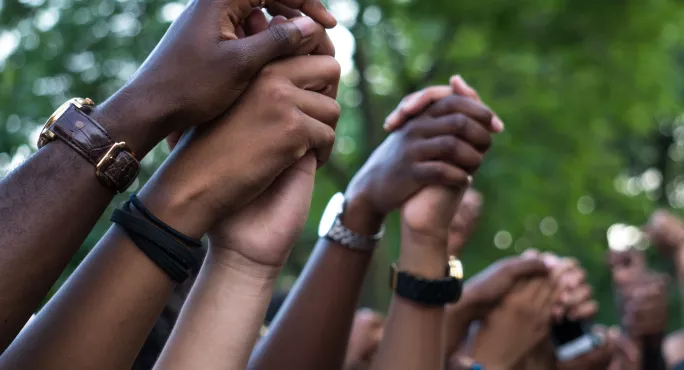- Home
- 3 practical steps to fight racial injustice in schools
3 practical steps to fight racial injustice in schools

I am mixed black Caribbean and white British and have experience of working in various schools at all levels, from the classroom to headship. In my current roles, I speak to and work with school leaders every day. Through this, I have a growing understanding of the actions being taken in and by schools to tackle racism and increase equality and diversity in the wake of the killing of George Floyd.
There is no doubt that the Black Lives Matter movement has sparked conversations, catalysed interest and created momentum. As we examine our society and our schools, we see that our systems inherently disadvantage people from black and/or minority ethnic (BAME) backgrounds. For example, in schools nationally, as seniority increases, BAME representation decreases. Is this because BAME teachers don’t make very good leaders? A more likely narrative is that there are highly skilled and highly qualified individuals who, for numerous reasons, are not able to progress at the same speed or to the same extent as their white counterparts.
Racism in schools: how to tackle it
Talking about racial injustice and working to eradicate it is mentally and emotionally taxing and I know that many school leaders want to see change but feel a sense of powerlessness. I am concerned that some will lack the sustained focus and commitment required to embed long-lasting and systemic change in their communities. Furthermore, there is an emerging risk that responsibility for tackling racial inequality falls disproportionately on the shoulders of BAME leaders. For example, identifying, training and mentoring BAME talent is not solely the responsibility of other BAME leaders.
Allyship is a crucial ingredient in the recipe for change. White British is the only ethnic group where representation increases into middle and senior leadership; consequently, most headteachers and multi-academy trust CEOs are not BAME.
Steps to fight racial injustice
For large-scale change to occur, all who are in leadership must lead the charge, regardless of their ethnicity.
What can school leaders do?
1. Make a pledge
There will be commonalities across some schools, but every school will need to do something different, as a result of their unique circumstances. Publicly committing to identify and address issues of racial inequality increases accountability. Signing up to the Business in the Community Race at Work Charter is a great place to start.
2. Improve and use workforce diversity data
By gathering the evidence, we can learn more about specific problems. For example, is there an ethnicity pay gap at your school? Are statistics around teacher retention and promotion by race proportionate?
As we gather data, we can ensure that action plans are targeted to address institution-specific challenges.
Data analysis is also crucial to measuring and evaluating the impact of changes made to policies and practice. It is incredibly important to break down the figures and interrogate the data by ethnic group, rather than solely using the broad category of BAME.
Despite my frequent use of the word, the umbrella term of BAME is ineffective in pinpointing the distinct problems faced by different groups. BAME is not a homogeneous group, and neither is “black” or “Asian”, for that matter. Data can only provide a partial picture, and individuals within these groups often have widely varying experiences. However, by using group-level diversity data, we can help to identify the issues at hand.
3. Consider how you can support BAME individuals into leadership
National data indicates that progressing into school leadership is a significant issue for BAME teachers. Mentoring, creating opportunities, networking, resource sharing, skills-building and leadership development can all be useful forms of support. Taking these steps in isolation would be insufficient, but their positive impact should not be underestimated as part of a wider strategy.
Increasing diversity, whether by ethnicity or any other protected characteristic, is something that is of benefit to us all.
Racial injustice is our problem to solve. We are faced with an opportunity to make a change; to make a positive difference. How will you respond?
Dennis Simms is co-chair of Heads Forward and a member of Teach First’s Headteachers’ Network
Keep reading for just £1 per month
You've reached your limit of free articles this month. Subscribe for £1 per month for three months and get:
- Unlimited access to all Tes magazine content
- Exclusive subscriber-only stories
- Award-winning email newsletters
